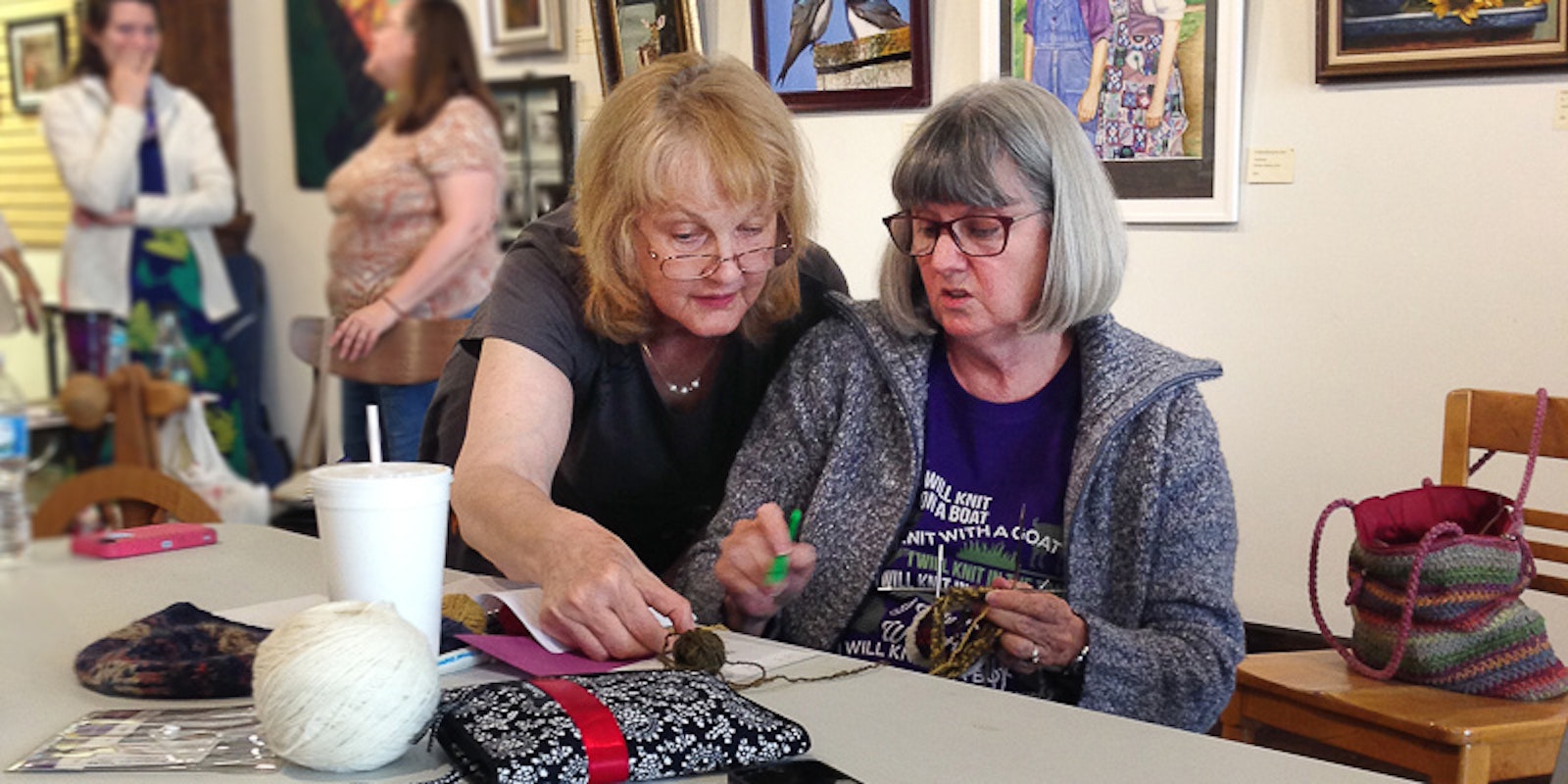How do you create the shading and shifting gradients that make Fair Isle knitting so irresistible? You can start with fibers that are all exactly the color you need, or you can blend them yourself! Shetlander Elizabeth Johnston has become well-known for her handspun, handknitted colorwork fabrics. She wrote a fantastic article for Spin Off Summer 2018, “Blending & Spinning for Fair Isle Knitting,” about how she uses the colors of natural Shetland wool to modify her knitting palette.
“Elizabeth says…” Carding Tips for Fair Isle**
1. Natural colors are complicated.
Elizabeth says that when she began knitting color-stranding patterns with her handspun yarns, she found the vast range of natural sheep colors could be difficult to combine into a pattern. Have you run into this frustration, too? Take heart and read on! Some natural colors have complex undertones that shift a color when it interacts with another color on your needles.
Color scheming. Elizabeth uses natural sheep colors as well as naturally-dyed colors to card gradients for Shetland knitting. Here is a palette of five colors I developed in one of her workshops using only three colors.
2. “Cutting” patterns
Strong or abrupt changes of color can “cut” the pattern, appearing as a stripe and making it more difficult to see the knitted design. Elizabeth says, “My best solution to create colors that would blend from one to the next, create the right amount of contrast, and shade well was to mix fleeces.” Two colors can be carded together to produce a medium color that bridges the transition, or natural sheep colors can be added to each of the colors to modify, darken, or lighten the colors.
3. Choose your background first.
Elizabeth suggests, “It is usually easier to plan a design if you decide on your background first and then choose the pattern colors.” I’ve found this to be true as well. It certainly isn’t a hard rule, but if you are overwhelmed with options when it comes to pattern colors, start with the background and then decide on the pattern shading. In my swatch below, I was so excited about my gradient of cream to green, I simply used a solid, mid-gray background. Then, as I blended the pattern colors, I made sure they were a strong enough contrast to be visible against the gray.
Kate’s palette at work.
** The terms “fair isle” and “color stranding” have become synonymous in common knitting parlance. However, it’s good to know that Fair Isle is a small island that is part of the Shetland Isles with its own unique motifs and color combinations. A Fair Isle pattern knit with more than one color per row is color stranding, but not all color stranding is technically Fair Isle knitting.
—Kate Larson
Featured Image: Elizabeth Johnston helps a student design a Shetland swatch using her handspun yarns. Photos by Kate Larson



